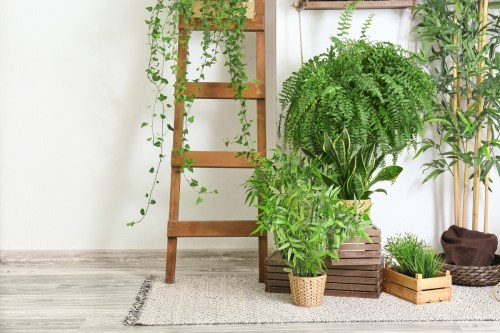
Whether this is your first plant or one of many, growing new plants can be extremely gratifying. You can propagate your existing plants through cuttings, or you can start from scratch with seeds. Which method is better?
Both are skills that require cultivation. While growing from cuttings is most accessible because you already have the plant at hand, starting plants from seeds has its own rewards. Here’s what you need to know about growing houseplants from seeds — we’ll even go over a few fast-growing indoor plants to make your plant-growing journey easier.
Which houseplants can be grown from seed?
Nearly every houseplant can start from a seed, so that’s not the real question. It’s a matter of which houseplant will sprout indoors with the conditions you have. In some cases, seeds need both heat and light to grow, while others only need a bit of moisture and a good-enough temperature.
Here are a few common indoor houseplants that will easily grow from seed:
- Peace lilies
- English ivy
- Living stone
- Cat grass
This is by no means an exhaustive list. Research your ideal plants to find out which ones will grow quickly from seed in indoor conditions.
How long does it take for a seed to grow into a plant?
Different plants have different germination times. Under ideal conditions, you may see sprouts the same week you plant them. In other cases, seeds must brood in their conditions much longer.
If you plant seeds and haven’t seen anything in a few weeks, take a look at that particular seed’s ideal conditions. Does it need more light? Does it need more heat? Did you bury the seed too deep or not deep enough? Changing the conditions to suit the seed may result in that long-awaited seedling.
Which seeds grow best indoors?
It’s possible to grow a variety of seeds indoors under the right conditions. However, a few are particularly suited to indoor starts. If this is your first time trying to sprout a seed, you might try:
- Coleus
- Marigolds
- Peace lilies
What is the easiest seed to grow indoors?
The easiest seed to grow indoors is one that matches the conditions you have. Take an analytical look at your home’s lighting, temperature, and humidity level. It really is that simple.
Which seeds are difficult to grow indoors?
While all plants can technically grow from seeds, some will be very difficult to cultivate from seeds indoors. For some plants, you may have a difficult time procuring your seeds or will need to wait a very long time for your plant to mature from seed. It may be a better use of your time to buy these as whole plants or find cuttings, but it never hurts to experiment. Some plants that are tricky to grow from seed include:
- Cacti
- Succulents
- Ferns (which technically grow from single-celled spores as opposed to seeds)
There are also plant features that may be difficult to replicate through seed growing — think cresting and variegation.
Step-by-step guide to growing a seed
To get started on your seed-growing journey, here’s what you need to do.
- Read the requirements for your seed germination — pay close attention to light, humidity, and planting depth.
- Find a space in your home that supports those conditions.
- Choose your container wisely. It should be small enough that your seed receives moisture but with a little room for your seedling to grow roots and spread out.
- Ensure your planting medium is ultra-loose. Those first few roots will need a little help spreading out.
- Once you see a sprout, keep your seedling moist by misting it once a day. Don’t let the medium dry out, but be sure there’s plenty of light to prevent mold and help the seedling start photosynthesis.
- Keep your seedling in its original growing container until you notice something called “true leaves.” These leaves resemble the plant’s real leaves, whereas the first two seedling leaves look like a generic plant.
With some care and time, you should see little seedlings coming up!
Troubleshooting seed issues
If your seed doesn’t germinate, there are a few things you can do.
- Research the average germination time for your seed. It can take several days, weeks, or even months for the germination process to happen.
- Tweak the light. Not all seeds need light to germinate, but many do. Move your seeds to a brighter window.
- Change the humidity. Placing a plastic bag or a bell jar over your seedling helps increase the humidity and could tease out your seedling.
- Change the planting depth. Some seeds want the standard planting depth, but some only want a light covering of soil or no covering at all.
- Be patient. If you’ve done everything within the realm of possibility, it may be a matter of waiting. Give your seeds plenty of time, and if you don’t see anything in a few weeks, you can decide whether to keep trying or start over.
When you make changes, do them one by one, giving your seeds time to adjust in between. Change the light and wait a few days before doing something else, for example. In many cases, it’s all about patience.
Don’t be discouraged if your first foray into seed growing doesn’t end with tons of thriving plants. It takes patience and time to learn how to germinate seeds. Start with some of the simple seeds on our list and take heart. Some fast-growing indoor plants may not have quick germination. The best part is the journey.